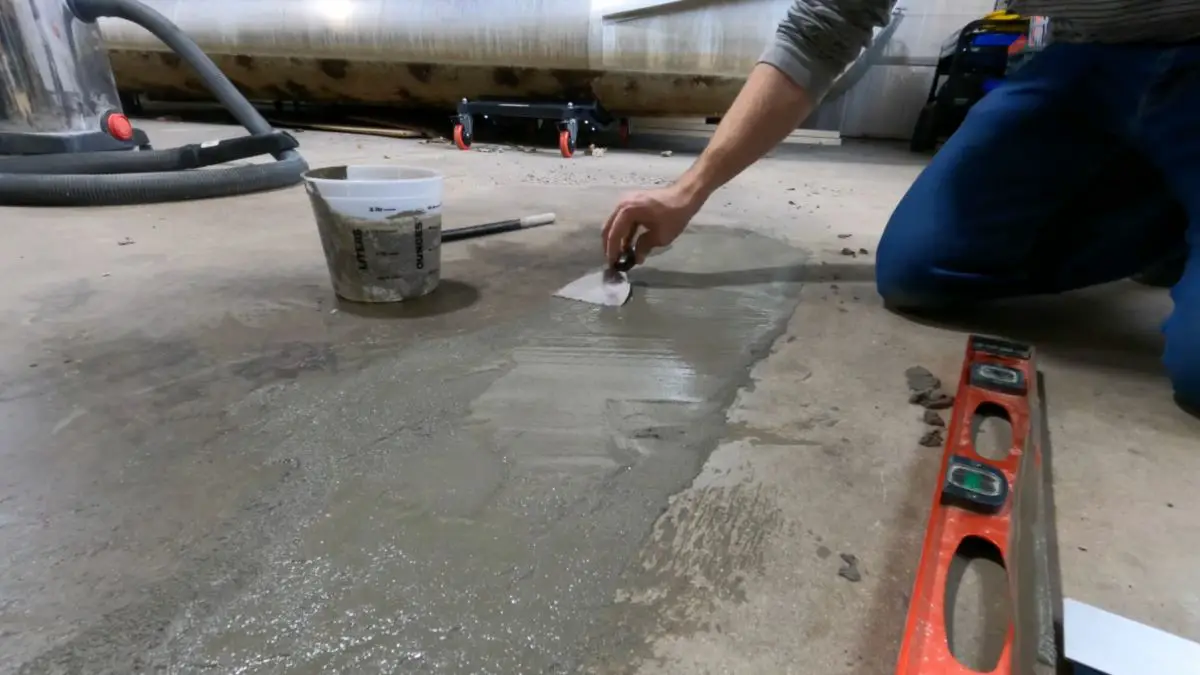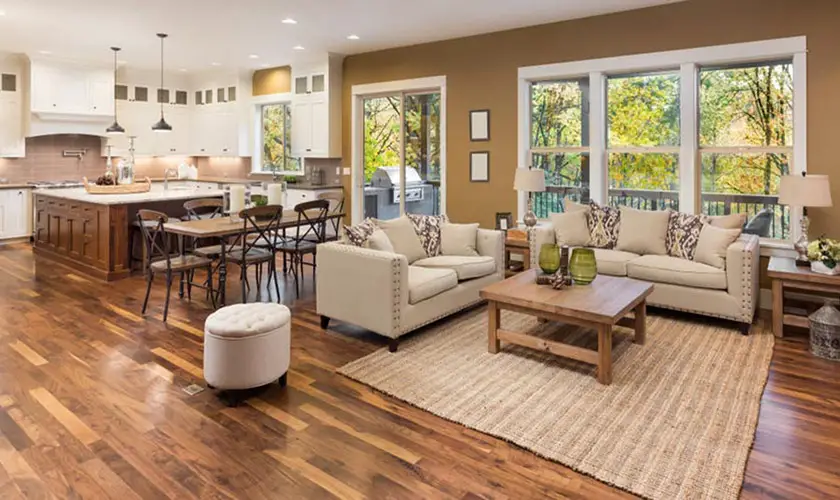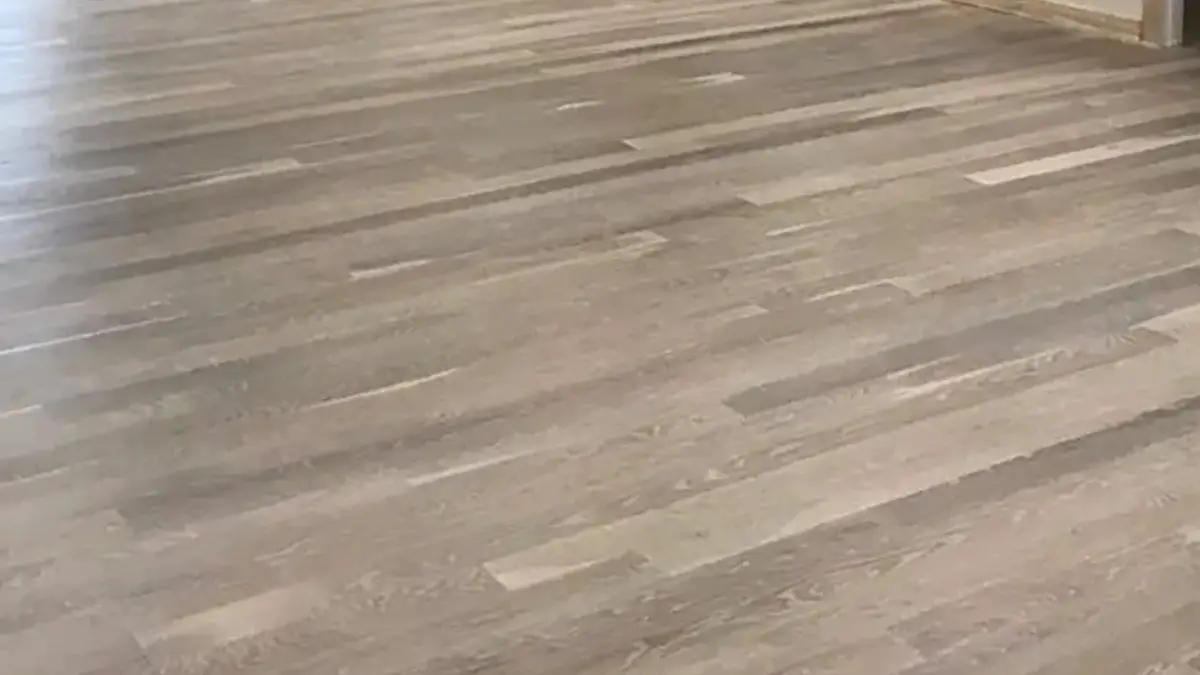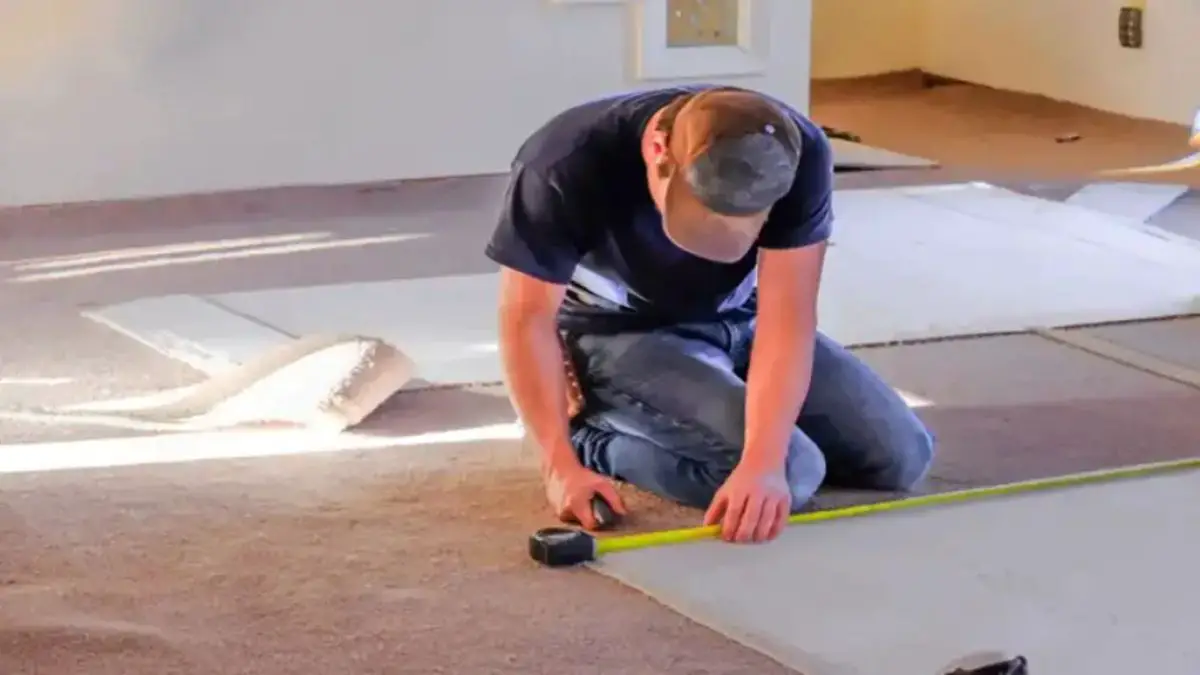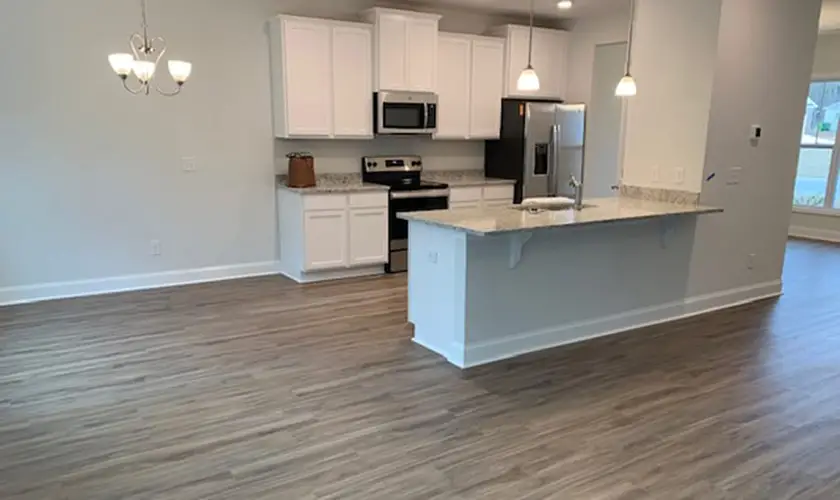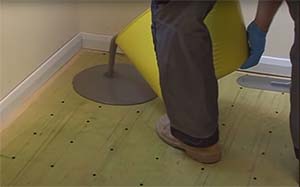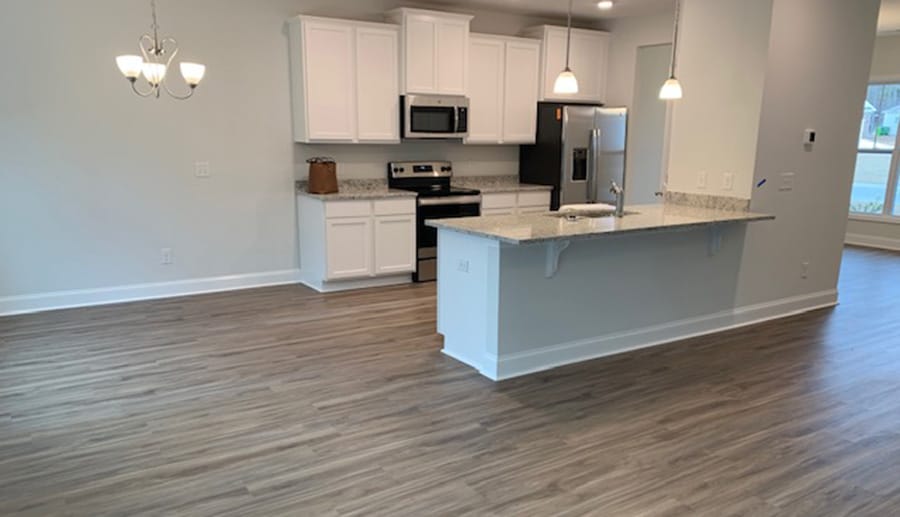
If you are looking for specific information on vinyl plank flooring, you have come to the right place! While choosing a floor, there are many things to keep in mind, such as if the ground itself will easily scratch, if they hold up well, or if members within your home will be spilling a lot of liquids. If this is the case, one huge question to ask yourself is, can water seep through vinyl planks?
You may already know that vinyl planks are waterproof. However, water can still manage to seep through or around the vinyl planks, especially if a flood occurs. If the water is not cleaned immediately after spilling, water may remain in the cracks, crevices, and edges of the floor, causing mold to form underneath.
When you notice that something has spilled, clean the liquid immediately afterward to avoid this issue. Today we will be talking about what you can do to prevent water damage from happening within your home, or when a flood occurs, what happens, and can we save the planks afterward. Keep reading to find out all there is to know.
What Do You Do If Water Gets Under Vinyl Plank Flooring?
Nobody ever wants to see water seep into their vinyl floors, especially if they are relatively new! The best thing we can do in these instances is either getting professional help if the damage is worse enough or do it on your own in these few simple steps.
- Watch for any water damage signs, including buckling, discoloration, and warping; the plank may be bulky-looking, any ridges, or bubbling involved.
- Fix any leaks from the source of the water. If you are unsure, here are a few ways to determine you have a water leak:
- Watch the water bill.
- Check your yard for greener grass than usual.
- Look over appliances often (bathroom and kitchen sink, water heater, dishwasher, underneath the bases of tubs, toilets, showers, and refrigerators.)
- Watch out for leaking cues (dripping sounds, musty smell, discoloration, bubble sounds, etc.)
- Check the attic or roof.
- Run a dye test on your toilet.
- Prepping the floor for any repairs.
- Remove any water that is on the surface with a shop vacuum, sponge, or squeegee.
- Clean the tiles with a vinyl-safe detergent.
- Allow the floors to dry with a dehumidifier and fan.
- Make any needed repairs.
- Allow the vinyl to dry before replacing or repairing any buckling on your floors thoroughly.
- If the area is not significantly damaged, you can clean and reuse the planks or tiles, but it may be best to replace the vinyl tile or plank flooring altogether if the damage is too much.
- Cut out the damaged planks and pry them out with a screwdriver or prybar.
Can Mold Grow Under Vinyl Plank Flooring?
When you hear the word mold, you start to panic a bit. This is a homeowner’s worst nightmare because it can cost thousands of dollars to get rid of. Not to mention it produces toxins in the air, which leads to sickness within your home. Since this is the case, you want to see if mold grows under vinyl planks. Unfortunately, yes, it can.
If you suspect this is the case, get a mold test kit and fix the underlying problem. Sometimes, the mold will be harmless, cleaned up with bleach, and air-dried out by a fan or air purifier. On the contrary, when it becomes a significant issue, it is best to find a professional to handle the situation before it gets out of hand.
Some signs of mold within your home are:
- A drop of bleach lightens its color in a couple of minutes.
- If there is an earthly or musty smell within your home.
- You see cracking, peeling, or warping on the place it is growing on.
- There is a source of moisture but not a lot of light in the area.
- If the dark spots continue to grow. Dirt and grime will not get larger.
Do I Need a Moisture Barrier Under Vinyl Plank Flooring?
Because we are talking about protecting our floors from moisture, it is essential to ask the question of if a moisture barrier is necessary or not. Vinyl plank flooring comes with an underlayment on the bottom of their planks, so it is not deemed necessary most of the time. However, to ensure extra protection on your floors, you can add a vinyl plank friendly underlayment, which will provide extra cushioning on your floors, especially if you have concrete as your subfloor.
If you decide to go with this option and want to glue your floors down, make sure the moisture barrier allows adhesive since some do not qualify for this option. It is also best to go with an excellent quality product, such as MP Global Products QuietWalk or 2in1 Silent Vapor Barrier, which are two great options, but if you prefer something else, there are more than plenty of choices out there. Make sure it is vinyl floor-friendly.
Can Vinyl Flooring Be Water Damaged?
Although vinyl flooring is proved to withstand any accidents or spills made, it does not necessarily mean that water damage will be completely null and void to this type of flooring.
However, vinyl tiles are one of the best options to have when it comes to water damage because, more often than not, the planks can be saved and reused by merely disassembling the planks and completely dry the floors with a shop vacuum.
You can use some other method, like using all of the towels, but this is the preferred option to get up water. It is crucial to make sure the planks are dried off completely before putting it back, test the subfloor for softness, sinking in any area for plywood, and the humidity or cracked areas for concrete before reinstalling.
Some vinyl floors come with a cork underlayment, which in this case, there may be mold or mildew underneath, and is not recommended for reinstallation. If there is a small leak or spill involved, make sure to quickly dry the floors up with a towel or shop vacuum, and this is where the underlayment comes in handy because you do not have to deal with cleaning up or replacing a damaged subfloor.
Can Vinyl Plank Flooring Be Removed and Reinstalled?
You can always remove and reinstall vinyl plank flooring if you are using the floating floor or system, which is a great way to save money, especially when there is water damage. If you decide to use adhesive, it will make the planks harder to be reinstalled.
What Is The Best Waterproof Vinyl Plank Flooring?
All vinyl plank flooring is waterproof, but what are the best options for your floors? If there are constant spills left and right, you will want to make sure to get the best flooring option available to you. Here are three brands we recommend that are some of the best options for you:
- Shaw Resilient: This company is excellent for high-traffic areas, easy to clean, stain-resistant, durability, and, more importantly, waterproof. One of their best qualities is that this company offers fiberglass fillings made from virgin vinyl, which is considered less toxic and durable than recycled vinyl.
- Cali Bamboo: Having one of the best warranties out there of 50 years, Cali Bamboo is entirely waterproof, making it one of the best options within your home. Not only this, but the floors are incredibly durable, with a wear layer of 20 mil (which is the recommendation for households with animals and children.) They also give off the same look as to what real wood or tile would be.
- COREtec: Looking like authentic wood, for half of the price, you can get luxurious flooring that is exquisite. Although this brand is a bit more expensive than other vinyl plank flooring, it is top-notch with look and style, durability, quality, and waterproof.
Should You Mop Vinyl Plank Flooring?
Typically, with a regular mop, the dirt and filth that may be on your floors will smear all over the place. However, using a Swiffer or something similar is perfectly okay in this scenario. Because of how easily vinyl plank flooring is to clean, you will want to mop your floors anywhere between 2 to 4 times a month with a vinyl-safe cleaner, such as dishwashing soap. If you prefer to take a natural alternative, then use a small amount of vinegar, water, and a few drops of your preferred dish soap, which leaves your floors looking clean and feeling fresh.
Conclusion
As a homeowner, the best option of floorings to get is one that will cause the least amount of damage to the subfloor and floor structure. Although water can seep through vinyl planks, rest assured that there are many precautions you can take to expand the life of them.
Just make sure you are regularly checking out for any leaks that your home may have to avoid replacing vinyl floors altogether and watch out for any warranty options available to you that have to do with the water damage when purchasing the floors.


